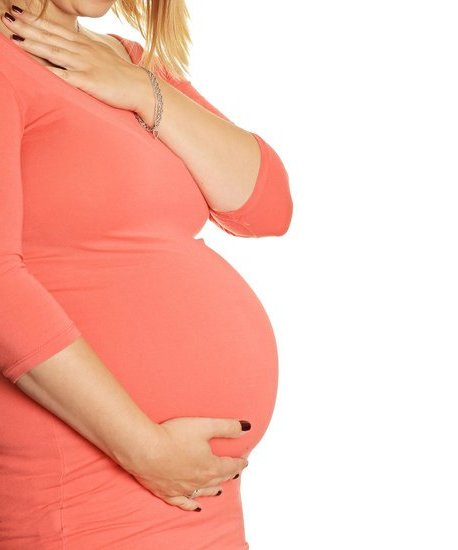How soon do you get pregnancy symptoms? Many women wonder about this question as they navigate the possibility of becoming pregnant.
Understanding the early signs of pregnancy is crucial for those trying to conceive, and even for those who may not have been actively planning to start a family.
In this article, we will explore the common early pregnancy symptoms, when you can expect to experience them, physical changes that occur in your body, emotional and mental signs to be aware of, individual variations that influence the onset of symptoms, when to take a pregnancy test for confirmation, and why it’s important to be aware of these early signs.
When it comes to pregnancy, recognizing the early signs is essential as it impacts personal health choices and decision-making processes. While every woman’s experience with pregnancy is unique, there are some general patterns and symptoms that are commonly reported during the early stages of gestation.
As we delve into the various aspects of understanding the early signs of pregnancy in this article, it’s important to keep in mind that this information can serve as a guide but may not necessarily apply to every individual. Each person’s body and circumstances are different. It’s crucial to approach this topic with an open mind and seek medical guidance if necessary.
What to Expect
Pregnancy is a beautiful journey that begins with several early signs and symptoms. It is important to be aware of these common early pregnancy symptoms as they can vary from woman to woman. Here are some of the most common symptoms you may experience in the early stages of pregnancy:
- Missed Period: One of the most common and well-known early signs of pregnancy is a missed period. This is often the first indication that leads many women to take a pregnancy test.
- Nausea and Vomiting: Often referred to as morning sickness, nausea and vomiting can occur at any time of the day for some pregnant women.
- Breast Changes: Tender, swollen breasts are also a common symptom in early pregnancy due to hormonal changes.
These are just a few examples of common early pregnancy symptoms, but there are many others that women may experience. Every woman’s experience with early pregnancy is unique, so it is essential to listen to your body and pay attention to any unusual changes.
It’s important to note that not all women will experience these symptoms, and some may experience them at different times during their pregnancies. If you suspect you may be pregnant but have not experienced any symptoms, it’s recommended to consult with a healthcare professional for further guidance on what steps to take next.
Understanding what to expect in terms of early pregnancy symptoms can help women better navigate this transformative time in their lives and seek appropriate prenatal care as soon as possible.
Timing
If you’re trying to get pregnant or suspect that you might be, it’s natural to wonder when you might start experiencing pregnancy symptoms. Every woman is different, so the timing of early pregnancy symptoms can vary from person to person. However, there are some general guidelines regarding when you can expect these signs to appear.
Normal timelines for early pregnancy symptoms:
- 1-2 weeks after conception: Some women may experience implantation bleeding, which is light spotting that occurs when the fertilized egg attaches to the uterine lining.
- 4-6 weeks after conception: This is typically when most women start to notice classic signs of early pregnancy such as breast tenderness, fatigue, and nausea (also known as morning sickness).
- 6-8 weeks after conception: By this time, many women will have missed a period and may begin to experience frequent urination and food aversions.
It’s important to remember that these timelines are just rough estimates. Some women may experience symptoms earlier or later than others. Additionally, some women may not experience any noticeable symptoms at all in the early stages of pregnancy.
Every woman’s body responds differently to the hormonal changes of pregnancy. External factors such as stress levels and overall health can also influence the onset and severity of pregnancy symptoms. If you suspect that you might be pregnant but haven’t experienced any symptoms yet, don’t worry – it doesn’t necessarily mean anything is wrong. It’s always best to consult with a healthcare professional for personalized guidance on your individual situation.
Physical Changes
During the early stages of pregnancy, your body undergoes numerous physical changes as it prepares to support the growth and development of a baby. One of the most noticeable changes is breast tenderness and enlargement due to hormonal shifts. Many women also experience fatigue, as the body works overtime to create a nourishing environment for the fetus. Additionally, you may notice frequent urination as your kidneys work harder to rid your body of waste products.
Another common physical change during early pregnancy is nausea and vomiting, commonly referred to as morning sickness. This can be attributed to the surge in hormones, particularly human chorionic gonadotropin (hCG), which is produced by the placenta. Some women may also experience food cravings or aversions as early as the first few weeks of pregnancy.
Moreover, you may notice a change in your skin, such as acne breakouts or darkening of the areolas. These changes are caused by hormonal fluctuations and increased blood flow. As your body adjusts to these various physical symptoms, it’s important to maintain open communication with your healthcare provider and seek their guidance on managing any discomfort or concerns.
| Physical Change | Common Early Pregnancy Symptom |
|---|---|
| Breast tenderness and enlargement | Yes |
| Fatigue | Yes |
| Nausea and vomiting (morning sickness) | Yes |
| Skin changes (acne breakouts, darkening of areolas) | Yes |
Emotional and Mental Signs
Pregnancy is often associated with physical changes, but it is important to also be aware of the emotional and mental signs that can accompany early pregnancy. Mood swings, anxiety, and increased emotional sensitivity are common experiences for many women in the early stages of pregnancy.
One of the most noticeable emotional signs of pregnancy is mood swings. These can be attributed to hormonal fluctuations as well as the stress and anticipation that comes with the realization of being pregnant. It is not uncommon for women to experience a range of emotions in a short period of time, from elation to irritability.
Anxiety is another common emotional symptom experienced by expectant mothers. The fear of miscarriage or concerns about the health and well-being of both the mother and the baby can contribute to increased feelings of anxiety.
Additionally, the significant life changes that come with pregnancy, such as financial worries or relationship adjustments, can also play a role in heightened anxiety levels. It’s important for women to seek support from their healthcare provider or a mental health professional if they are struggling with anxiety during pregnancy.
| Emotional and Mental Signs | Mood Swings, Anxiety, and More |
|---|---|
| Mood swings related to hormonal fluctuations and stress | Common experience for many women in early pregnancy |
| Anxiety due to fear of miscarriage and other concerns | Increased feelings of anxiety during pregnancy |
Individual Variations
Body Chemistry and Hormonal Balance
Every woman’s body is unique, and as a result, the timing and intensity of early pregnancy symptoms can vary greatly. One of the key factors that influence the onset of pregnancy symptoms is a woman’s body chemistry and hormonal balance. The levels of hormones such as progesterone and human chorionic gonadotropin (hCG) can differ from one woman to another, leading to differences in how soon pregnancy symptoms manifest.
Overall Health and Lifestyle
Another factor that plays a role in when pregnancy symptoms start to appear is a woman’s overall health and lifestyle. Women who are physically active or have healthy eating habits may experience different early pregnancy symptoms compared to those who lead sedentary lifestyles or have poor nutrition. Similarly, underlying health conditions such as thyroid disorders or polycystic ovary syndrome (PCOS) can impact the timing and severity of pregnancy symptoms.
Previous Pregnancy Experience
Women who have been pregnant before may also notice variations in how soon they experience pregnancy symptoms with subsequent pregnancies. Some women may recognize familiar signs very early on due to their past experiences, while others might have different symptom patterns with each pregnancy. Additionally, women who have experienced pregnancy complications or miscarriages in the past may be more attuned to subtle changes in their bodies, affecting when they become aware of early signs of pregnancy.
Seeking Confirmation
Many women wonder about the timing of taking a pregnancy test to confirm their suspicions. It is important to understand when it is appropriate to take a pregnancy test in order to get accurate results and avoid unnecessary anxiety or disappointment.
Factors to Consider
There are several factors to consider when deciding when to take a pregnancy test. One of the most important factors is the regularity of your menstrual cycle. If you have a regular cycle, you can typically take a pregnancy test about a week after your missed period for accurate results.
However, if your cycle is irregular, it may be best to wait two weeks after potential conception before taking a test. Additionally, the type of pregnancy test you use can also affect the timing of when you should take it.
Early Testing
While some women may be eager to find out if they are pregnant as soon as possible, early testing can sometimes lead to false negative results. This occurs because the levels of hCG (human chorionic gonadotropin) – the hormone detected by pregnancy tests – may not be high enough in the early stages of pregnancy for the test to accurately detect it. As such, waiting until closer to your expected period or even afterwards can increase accuracy.
Consulting With Your Healthcare Provider
If you are unsure about when to take a pregnancy test or have concerns about your symptoms, it is always best to consult with your healthcare provider. They can provide guidance on when is best for you individually based on your medical history and specific circumstances.
Conclusion
In conclusion, it is important for women to be aware of the early signs and symptoms of pregnancy. Understanding what to expect and when to expect it can help alleviate anxiety and uncertainty during this crucial time. By recognizing the physical, emotional, and mental changes that come with early pregnancy, individuals can better prepare for the journey ahead.
One of the most common questions asked by women is “how soon do you get pregnancy symptoms?” The answer varies from person to person, but knowing what to look out for can make a significant difference in seeking proper care and support. Being informed about individual variations and factors that influence the onset of pregnancy symptoms can empower individuals to take control of their health and well-being during this sensitive period.
Ultimately, being aware of early pregnancy symptoms is not just about confirming a pregnancy-it’s also about taking proactive steps towards ensuring a healthy and supported journey into motherhood. Whether it’s seeking confirmation through a home pregnancy test or consulting with a healthcare provider, having knowledge about early pregnancy symptoms can make all the difference in beginning this new chapter in life.
Frequently Asked Questions
How Can I Tell if Im Pregnant After 1 Week?
It is unlikely to be able to tell if you are pregnant after just one week. At this early stage, the embryo has not yet implanted in the uterus, so there are no physical signs of pregnancy.
How Early Do Pregnancy Symptoms Start?
Pregnancy symptoms can start as early as one to two weeks after conception. These symptoms can include fatigue, breast tenderness, nausea, and frequent urination. However, every woman’s experience is different.
How Soon After Getting Pregnant Will You Feel Symptoms?
Some women may start feeling symptoms of pregnancy as early as a week after conception, while others may not experience any symptoms for several weeks. It all depends on the individual’s hormones and body chemistry. Generally, most women start experiencing symptoms around 4-6 weeks after conception.

Welcome to my fertility blog. This is a space where I will be sharing my experiences as I navigate through the world of fertility treatments, as well as provide information and resources about fertility and pregnancy.





